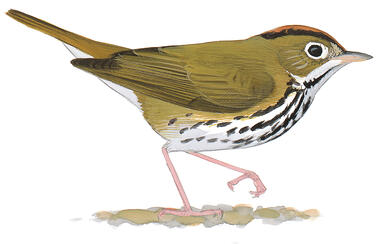 |
| October 1, 2016 |
5 P. M. –– Just put a fugitive slave who has taken the name of Henry Williams, into the cars for Canada.
He escaped from Stafford County Virginia, to Boston last October; has been in Shadrach's place at the Cornhill Coffee-House; had been corresponding through an agent with his master, who is his father, about buying himself, his master asking $600, but he having been able to raise only $500.
Heard that there were writs out for two Williamses, fugitives, and was informed by his fellow-servants and employer that Augerhole Burns and others of the police had called for him when he was out.
Accordingly fled to Concord last night on foot, bringing a letter to our family from Mr. Lovejoy of Cambridge and another which Garrison had formerly given him on another occasion.
He escaped from Stafford County Virginia, to Boston last October; has been in Shadrach's place at the Cornhill Coffee-House; had been corresponding through an agent with his master, who is his father, about buying himself, his master asking $600, but he having been able to raise only $500.
Heard that there were writs out for two Williamses, fugitives, and was informed by his fellow-servants and employer that Augerhole Burns and others of the police had called for him when he was out.
Accordingly fled to Concord last night on foot, bringing a letter to our family from Mr. Lovejoy of Cambridge and another which Garrison had formerly given him on another occasion.
He lodged with us, and waited in the house till funds were collected with which to forward him. Intended to dispatch him at noon through to Burlington, but when I went to buy his ticket, saw one at the depot who looked and behaved so much like a Boston policeman that I did not venture that time.
An intelligent and very well-behaved man, a mulatto.
The slave said he could guide himself by many other stars than the north star, whose rising and setting he knew. They steered for the north star even when it had got round and appeared to them to be in the south. They frequently followed the telegraph when there was no railroad.
The slaves bring many superstitions from Africa. The fugitives sometimes superstitiously carry a turf in their hats, thinking that their success depends on it.
An intelligent and very well-behaved man, a mulatto.
The slave said he could guide himself by many other stars than the north star, whose rising and setting he knew. They steered for the north star even when it had got round and appeared to them to be in the south. They frequently followed the telegraph when there was no railroad.
The slaves bring many superstitions from Africa. The fugitives sometimes superstitiously carry a turf in their hats, thinking that their success depends on it.
There is art to be used, not only in selecting wood for a withe, but in using it. Birch withes are twisted, I suppose in order that the fibres may be less abruptly bent; or is it only by accident that they are twisted?
These days when the trees have put on their autumnal tints are the gala days of the year, when the very foliage of trees is colored like a blossom. It is a proper time for a yearly festival, an agricultural show.
Candle-light. To Conantum. The moon not quite half full.
The twilight is much shorter now than a month ago, probably as the atmosphere is clearer and there is less to reflect the light.
The air is cool, and the ground also feels cold under my feet, as if the grass were wet with dew, which is not yet the case.
I go through Wheeler's corn-field in the twilight, where the stalks are bleached almost white, and his tops are still stacked along the edge of the field.
The moon is not far up above the southwestern horizon.
Looking west at this hour, the earth is an unvaried, undistinguishable black in contrast with the twilight sky. It is as if you were walking in night up to your chin.
There is no wind stirring. An oak tree in Hubbard's pasture stands absolutely motionless and dark against the sky.
The crickets sound farther off or fainter at this season, as if they had gone deeper into the sod to avoid the cold. There are no crickets heard on the alders on the causeway.
The moon looks colder in the water, though the water-bugs are still active.
There is a great change between this and my last moonlight walk. I experience a comfortable warmth when I approach the south side of a dry wood, which keeps off the cooler air and also retains some of the warmth of day.
The voices of travellers in the road are heard afar over the fields, even to Conantum house.
The stars are brighter than before.
The moon is too far west to be seen reflected in the river at Tupelo Cliff, but the stars are reflected. The river is a dark mirror with bright points feebly fluctuating.
I smell the bruised horsemint, which I cannot see, while I sit on the brown rocks by the shore.
I see the glow-worm under the damp cliff.
No whip poor-wills are heard to-night, and scarcely a note of any other bird.
At 8 o'clock the fogs have begun, which, with the low half-moon shining on them, look like cob webs or thin white veils spread over the earth. They are the dreams or visions of the meadow.
The second growth of the white pine is probably softer and more beautiful than the primitive forest ever afforded.
The primitive forest is more grand with its bare mossy stems and ragged branches, but exhibits no such masses of green needles trembling in the light.
The elms are generally of a dirty or brownish yellow now.
H. D. Thoreau, Journal, October 1, 1851











